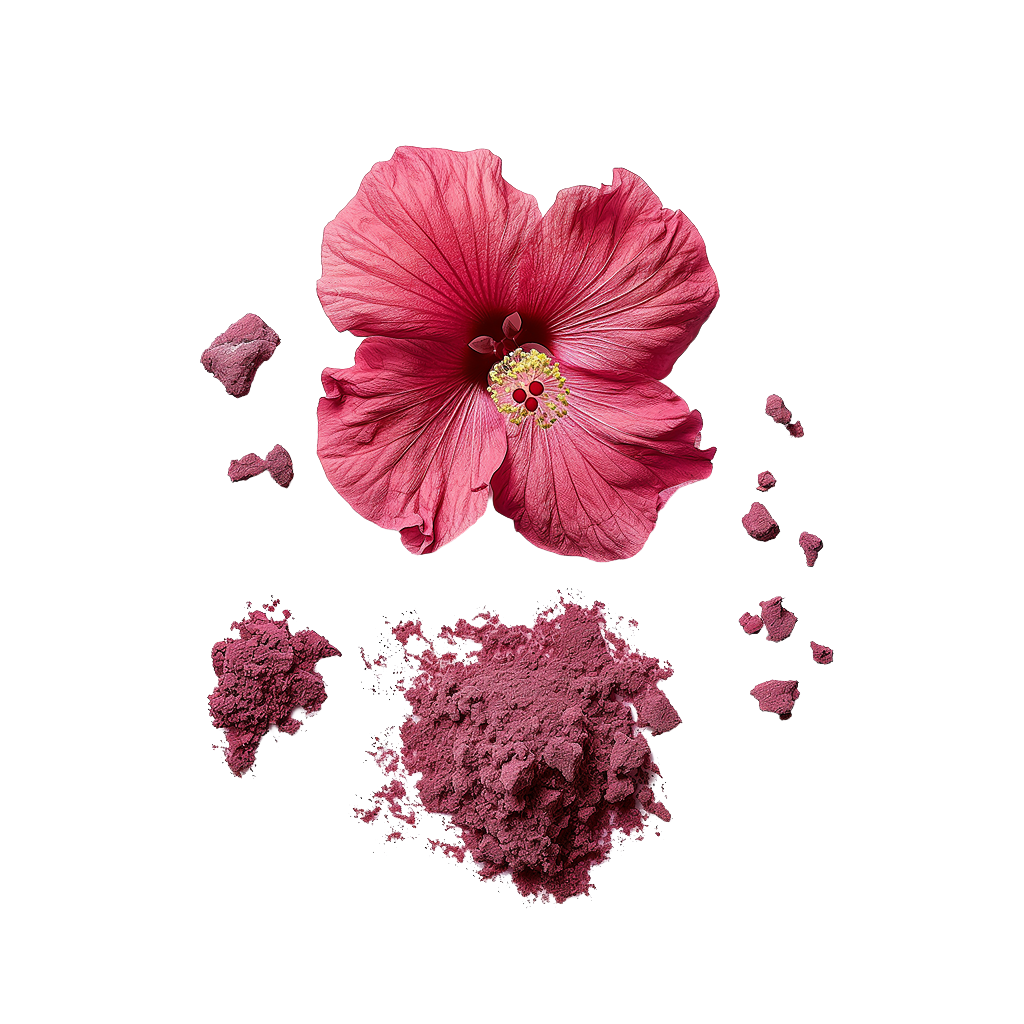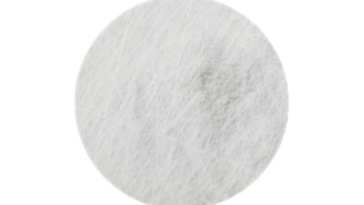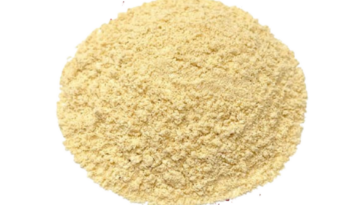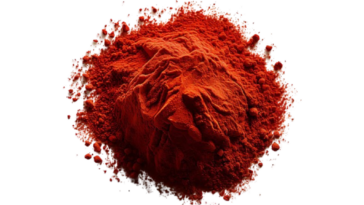Hibiscus powder, derived from the vibrant and colorful hibiscus flower, traces its origins to ancient civilizations across tropical and subtropical regions. The hibiscus plant, scientifically known as Hibiscus sabdariffa, has been cultivated for thousands of years for its ornamental beauty as well as its medicinal and culinary properties. Native to Africa and Asia, hibiscus has a rich history intertwined with various cultures and traditions. Ancient Egyptians revered hibiscus for its symbolic significance, often incorporating it into ceremonies and rituals, while in traditional Chinese medicine, hibiscus was utilized for its purported health benefits.
Over time, the use of hibiscus expanded globally, spreading to regions such as the Caribbean, Latin America, and the Indian subcontinent. Its popularity soared as people discovered its versatility in culinary applications, including teas, jams, and desserts. In addition to its culinary uses, hibiscus gained recognition for its health-promoting properties, attributed to its high content of antioxidants, vitamins, and minerals. Today, hibiscus powder is a common ingredient in natural skincare and haircare products, celebrated for its nourishing and rejuvenating effects. Its journey from ancient civilizations to modern-day wellness practices highlights the enduring appeal and significance of this vibrant botanical ingredient.
Vitamins & Minerals:
Hibiscus powder, derived from the dried petals of the Hibiscus sabdariffa flower, contains several vitamins and minerals that contribute to its nutritional profile. Some of the key vitamins found in hibiscus powder include vitamin C, vitamin A, and various B vitamins such as riboflavin (B2) and niacin (B3). Vitamin C is a potent antioxidant that supports immune function, collagen production, and iron absorption. It also helps protect cells from damage caused by harmful molecules called free radicals. Vitamin A plays a crucial role in vision, immune function, and skin health. Additionally, B vitamins are essential for energy metabolism, nerve function, and maintaining healthy skin and hair.
In terms of minerals, hibiscus powder contains significant amounts of calcium, iron, and phosphorus. Calcium is essential for bone health, muscle function, and nerve transmission. Iron is crucial for the production of red blood cells, which carry oxygen throughout the body, and it also supports immune function and energy production. Phosphorus is involved in bone and teeth formation, as well as cell repair and maintenance. These vitamins and minerals found in hibiscus powder contribute to overall health and well-being, making it a valuable addition to a balanced diet.
Probiotic, Prebiotic, or Postbiotic:
Hibiscus powder, derived from the hibiscus flower, is primarily known for its rich antioxidant content and potential health benefits. While it’s not typically considered a probiotic, prebiotic, or postbiotic in the traditional sense, it does possess certain properties that can contribute to gut health indirectly.
- Prebiotic Properties: Prebiotics are non-digestible fibers that stimulate the growth and activity of beneficial bacteria in the gut. While hibiscus powder itself doesn’t contain significant amounts of prebiotic fibers, it does contain a type of fiber called mucilage. Mucilage can act as a mild prebiotic by providing a source of food for beneficial gut bacteria, promoting their growth and activity.
- Antioxidant Effects: Hibiscus powder is rich in antioxidants, particularly flavonoids and polyphenols. These compounds help combat oxidative stress and inflammation in the body, which can indirectly support gut health. By reducing inflammation in the gut, antioxidants may create a more hospitable environment for beneficial gut bacteria to thrive.
- Potential Postbiotic Effects: Postbiotics are metabolic byproducts produced by probiotic bacteria that confer health benefits. While hibiscus powder itself is not a postbiotic, its consumption may support the growth of probiotic bacteria in the gut due to its antioxidant and anti-inflammatory properties. As a result, the production of postbiotic compounds by these beneficial bacteria could be enhanced, further promoting gut health.
Overall, while hibiscus powder may not directly function as a probiotic, prebiotic, or postbiotic, its consumption can contribute to gut health through various mechanisms such as providing mild prebiotic effects, reducing inflammation, and supporting the growth of beneficial gut bacteria.
Dietary & Health Information:
Hibiscus powder, derived from the dried flowers of the hibiscus plant, is often used in various culinary and medicinal applications. Here’s some dietary and health information about hibiscus powder:
Nutritional Content: Hibiscus powder is rich in various nutrients, including vitamin C, antioxidants, and minerals such as calcium, iron, and magnesium. It also contains various organic acids, including citric acid, malic acid, and tartaric acid.
Health Benefits:
- Blood Pressure Regulation: Hibiscus has been studied for its potential to help lower blood pressure. Some research suggests that it may have a mild antihypertensive effect, which could be beneficial for those with high blood pressure.
- Heart Health: The antioxidants in hibiscus may help improve heart health by reducing oxidative stress and inflammation, which are factors associated with cardiovascular disease.
- Liver Health: Some studies indicate that hibiscus extract may have hepatoprotective effects, meaning it could help protect the liver from damage caused by toxins or diseases.
- Weight Management: Some research suggests that hibiscus extract may help with weight management by inhibiting the absorption of carbohydrates and promoting fat metabolism.
- Antioxidant Properties: Hibiscus is rich in antioxidants, which help combat oxidative stress and reduce the risk of chronic diseases.
Maximum Intake per Day: While hibiscus powder can offer health benefits, it’s essential to consume it in moderation. There isn’t a specific recommended maximum intake per day established for hibiscus powder. However, it’s generally advisable to follow the recommended dosage provided by the manufacturer or to consult with a healthcare professional, especially if you have any underlying health conditions or are taking medications. Excessive consumption of hibiscus tea or powder may lead to adverse effects such as stomach upset or interference with certain medications. As with any supplement, it’s essential to use it responsibly and in accordance with professional guidance.




 No products in the cart.
No products in the cart.